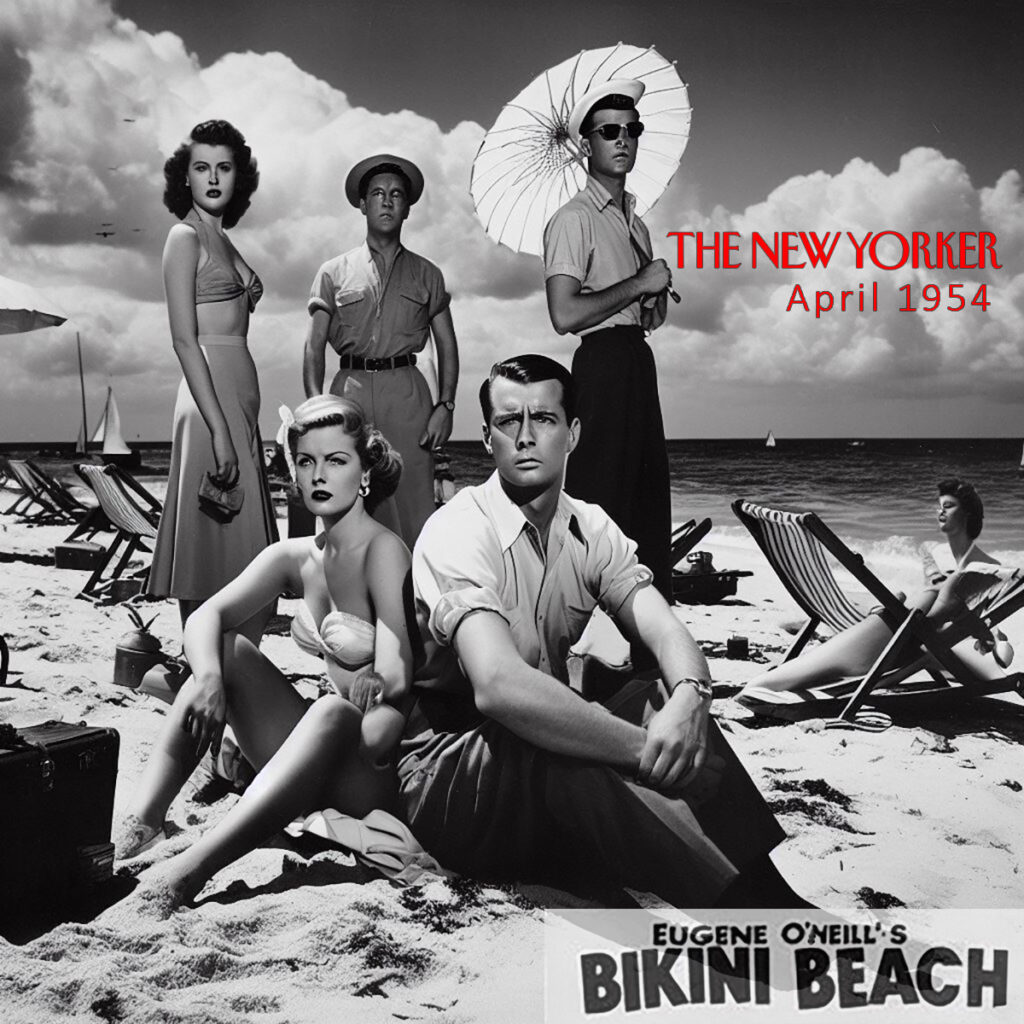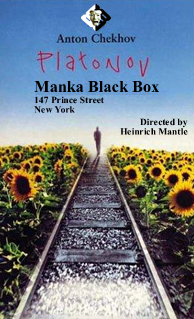Eugene O’Neill’s Bikini Beach (1954) – A Cinematic Anomaly [NEW YORKER by A. Waldhorn]
Eugene O’Neill’s Bikini Beach, the latest offering from Manka Bros. Studios, is a perplexing amalgamation of highbrow drama and lowbrow entertainment.
Directed by the enigmatic Gerald Von Loven, this film dives headfirst into uncharted waters, attempting to fuse the serious themes of O’Neill’s renowned plays with the frivolity of a beachside romp. The result is a cinematic oddity that leaves viewers questioning its intentions and ultimate message.
Set against the backdrop of a picturesque beach resort, the film follows the lives of a group of young vacationers as they navigate love, lust, and existential angst. The characters, thinly veiled caricatures of O’Neill’s iconic figures, engage in melodramatic dialogue that often feels out of place amidst the sun-soaked scenery and carefree atmosphere.
At its core, Bikini Beach strives to explore weighty themes such as the human condition, the nature of desire, and the quest for meaning in a seemingly indifferent universe. However, these profound ideas are frequently overshadowed by juvenile humor, gratuitous beach scenes, and musical interludes that serve little narrative purpose.
The cast, led by the charismatic but miscast William “Billy” Hammerstein as the tortured protagonist, delivers performances that range from wooden to over-the-top. Despite their efforts, the actors struggle to breathe life into characters that feel more like archetypes than fully realized individuals.
Visually, Bikini Beach is a feast for the eyes, with vibrant Technicolor cinematography capturing the beauty of its seaside setting. However, the film’s aesthetic pleasures are often undercut by its jarring tonal shifts and disjointed narrative structure.
One cannot help but wonder what Eugene O’Neill, known for his introspective and deeply psychological dramas, would make of this unconventional adaptation of his work. While the film’s ambition is commendable, its execution leaves much to be desired.
In conclusion, Eugene O’Neill’s Bikini Beach is a curious experiment that falls short of its lofty aspirations. Despite moments of genuine insight and occasional flashes of brilliance, the film ultimately fails to reconcile its conflicting elements, resulting in a disjointed and unsatisfying cinematic experience.
A. Waldhorn – The New Yorker







